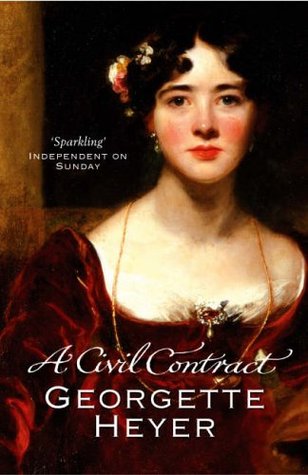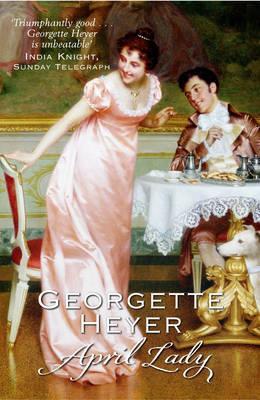Once upon a time, fairy tales were awesome.
Everyone thinks children are sweet as Necco Wafters, but I've lived long enough to know the truth: kids are rotten. The only difference between grown-ups and kids is that grown-ups go to jail for murder. Kids get away with it.
Come to think of it, the day my brother tried to eat his first-grade teacher turned out to be the same day that my dad brought me home a very, very strange cat.
I don't want to die, I thought. Not again.
The big question: Is Origami Yoda real? Well, of course, he's real. I mean, he's a real finger puppet made out of a real piece of paper. But I mean: Is he REAL? Does he really know things? Can he see the future? Does he use the force?
Emma Woodhouse--handsome, clever, and rich, with a comfortable home and happy disposition--had lived nearly twenty-one years in the world with very little to distress her. Until the vampire attacks began.
August's Top Five:
A Tale Dark and Grimm. Adam Gidwitz.
The Convenient Marriage. By Georgette Heyer. (1934) Read by Richard Armitage. (2010)
To Kill A Mockingbird. Harper Lee.
Turtle in Paradise. Jennifer L. Holm.
Pocketful of Posies: A Treasury of Nursery Rhymes. Salley Mavor
Number of Board Books: 6
Baby's Book Tower. By Leslie Patricelli. 2010. August 2010. Candlewick. 96 pages.
Count My Kisses, Little One. Ruthie May. Illustrated by Tamsin Ainslie. 2010. August 2010. Scholastic. 24 pages.
Five Little Ducks. Beth Harwood. Illustrated by Emma Dodd. 2008. Amazing Baby. 10 pages.
Time for Bed. Mem Fox. Illustrated by Jane Dyer. 1993/2010. Houghton Mifflin Harcourt. 28 pages.
Amazing Baby: Clap and Sing. Emma Dodd. 2007. Silver Dolphin. 12 pages.
Princess Baby On the Go. Karen Katz. 2010. August 2010. Random House. 14 pages.
Number of Picture Books: 10
Dog Loves Books. Louise Yates. 2010. July 2010. Random House. 32 pages.
Too Pickley! By Jean Reidy. Illustrated by Genevieve Leloup. 2010. July 2010. Bloomsbury. 32 pages.
Don't Let the Pigeon Stay Up Late. Mo Willems. 2006. Hyperion. 40 pages.
Piggy Pie Po. Audrey & Don Wood. 2010. September 2010. Houghton Mifflin Harcourt. 32 pages.
The Most Amazing Hide-and-Seek Alphabet Book. Robert Crowther. 1999/2010. August 2010. Candlewick. 12 pages.
The Most Amazing Hide-and-Seek Numbers Book. Robert Crowther. 2010. August 2010. (1999) Candlewick. 12 pages.
Time to Sleep, Sheep the Sheep! Mo Willems. 2010. HarperCollins. 32 pages.
One Smart Cookie: Bite Size Lessons for the School Years and Beyond. By Amy Krouse Rosenthal. Illustrated by Jane Dyer & Brooke Dyer. 2010. HarperCollins. 40 pages.
Chicken Big. Keith Graves. 2010. Chronicle Books. 40 pages.
It's A Book. Lane Smith. 2010. August 2010. Roaring Brook Press. 32 pages.
Number of Children's Books: 6
In Too Deep (The 39 Clues #6) Jude Watson. 2009. Scholastic. 206 pages.
Complete Adventures of Curious George: 70th Anniversary Edition. Margret and H.A. Rey. 2010. Houghton Mifflin Harcourt. 432 pages.
Curious George Storybook Collection. 2010. September 2010. Houghton Mifflin Harcourt. 197 pages.
Otter Everywhere: Brand New Readers. By Christine Webster. Illustrated by Tim Nihoff. 2007. Candlewick Press. 48 pages.
Brand New Readers: Termite Tales. Kathy Caple. 2009. Candlewick Press. 48 pages.
Brand New Readers: Larry and Rita. Jamie Michalak. Illustrated by Jill Newton. 2007. Candlewick Press. 48 pages.

Number of Middle Grade: 7
A Tale Dark and Grimm. Adam Gidwitz. 2010. November 2010. Penguin. 192 pages.
Leaving Gee's Bend. Irene Latham. 2010. Penguin. 240 pages.
The Strange Case of Origami Yoda. Tom Angleberger. 2010. Harry N. Abrams. 141 pages.
Knightley Academy. Violet Haberdasher. 2010. Simon & Schuster. 469 pages.
Crunch. Leslie Connor. 2010. HarperCollins. 336 pages.
The Witchy Worries of Abbie Adams. Rhonda Hayter. 2010. Penguin. 256 pages.
Turtle in Paradise. Jennifer L. Holm. 2010. Random House. 208 pages.
Number of YA: 6
Kiss of Life. Daniel Waters. 2009. Hyperion. 416 pages.
Glimpse. Carol Lynch Williams. 2010. June 2010. Simon & Schuster. 496 pages.
Passing Strange (Generation Dead #3). Daniel Waters. Hyperion. 400 pages.
Sphinx's Princess. Esther Friesner. 2009. Random House. 384 pages.
Shiver. Maggie Stiefvater. 2009. Scholastic. 400 pages.
The Half-Life of Planets. Emily Franklin. and Brendan Halpin. 2010. Hyperion. 256 pages.
Number of Adult: 7
The Convenient Marriage. By Georgette Heyer. (1934) Read by Richard Armitage. 2010. August 2010. Naxos Audiobooks. 5 hrs. 6 minutes.
Beauvallet. Georgette Heyer. 1929/2010. Sourcebooks. 301 pages.
Emma and the Vampires by Wayne Josephson. 2010. Sourcebooks. 304 pages.
April Lady. Georgette Heyer. 1957/2005. Harlequin. 270 pages.
The Foundling. Georgette Heyer. 1948/2009. Sourcebooks. 439 pages.
To Kill A Mockingbird. Harper Lee. 1960. 281 pages.
Civil Contract. Georgette Heyer. 1961/2009. Harlequin. 432 pages.
Number of Christian: 6
The Discipline of Spiritual Discernment. Tim Challies. 2007. Crossway Publishers. 208 pages.
Masquerade by Nancy Moser. 2010. Bethany House. 368 pages.
George Whitefield: God's Anointed Servant in the Great Revival of the Eighteenth Century. Arnold A. Dallimore. 2010. Crossway Publishers. 224 pages.
The Devil in Pew Number Seven: A True Story. Rebecca Nichols Alonzo with Bob DeMoss. 2010. Tyndale. 288 pages.
Choosing to SEE: A Journey of Struggle and Hope. Mary Beth Chapman. With Ellen Vaughn. 2010. Revell. 288 pages.
The Vigilante's Bride. Yvonne Harris. 2010. Bethany House. 304 pages.
Number of Nonfiction:
Number of Graphic Novels: 2
Koko Be Good. Jen Wang. 2010. September 2010. First Second. 304 pages.
Frankenstein The Graphic Novel: Original Text. Mary Shelley. 2008. Script Adaptation by Jason Cobley, American English Adaptation: Joe Sutcliff Sanders. Illustrations by Declan Shalvey, Jason Cardy & Kat Nicholson, etc. Classical Comics. 144 pages.
Number of Poetry: 1
Pocketful of Posies: A Treasury of Nursery Rhymes. Salley Mavor. 2010. September 2010. Houghton Mifflin. 72 pages.
Number of Short Story Collections/Anthologies:
© Becky Laney of Becky's Book Reviews






